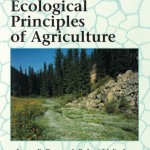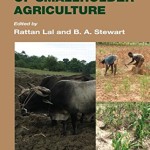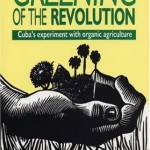[amzn_product_post]
Read More →Author: Admin
The Greening of the Revolution: Cuba’s Experiment with Organic Agriculture
Ecological Principles of Agriculture

Ecological Principles of Agriculture is a text for students of agriculture and ecology. Its strength can be found in its versatility. Agricultural students with no prior coursework in ecology will find it invaluable as an introduction to ecological principles, while ecology students will gain insight into the practical application of these principles with respect to agriculture. This text will help students understand the ecological processes inherent in any agricultural system as well as their implications in agricultural management. Without discussing every different type of agricultural practice (an impossible task), students will come away with an understanding of how to apply these principles to agricultural design, management and problem-solving in very specific situations.
Read More →The Field and Garden Vegetables of America Containing Full Descriptions of Nearly Eleven Hundred Species and Varietes; With Directions for Propagation,Culture and Use.

This book was converted from its physical edition to the digital format by a community of volunteers. You may find it for free on the web. Purchase of the Kindle edition includes wireless delivery.
Read More →Soil Management of Smallholder Agriculture (Advances in Soil Science)

Nearly two billion people depend on hundreds of millions of smallholder farmers for food security. Yet, these farmers’ lives also hang in the balance due to their extreme vulnerability to the risks of soil degradation and depletion, soil exhaustion, climate change, and numerous biotic and abiotic stresses. Soil Management of Smallholder Agriculture explores the potential smallholder agriculture hold for advancing global food security and outlines the challenges to achieving this goal.
The book addresses the challenges and opportunities that resource-poor and small landholders face and provides recommended management practices to alleviate soil-related constraints, and increase and sustain crop yield and production. It discusses the cultural, economic, social, and technological aspects of sustainable soil management for smallholder farmers. It then examines soil-related and institutional constraints, principles of sustainable agriculture, soil quality improvement, nutrient and soil fertility management, soil carbon sequestration, soil security, efficient use of resources, and agronomic production.
Edited by experts, the book makes the case for the adoption of proven technologies of sustainable intensification, producing more from less, both for advancing agronomic production and adapting to changing climate. It outlines a strategy that will usher in a soil-based Green Revolution by increasing the use efficiency of energy-based inputs such as fertilizers, pesticides, and irrigation to restore soil quality, and sequestering carbon in the terrestrial ecosystems. This strategy helps small farms narrow the gap between the actual and attainable crop yield.
Read More →